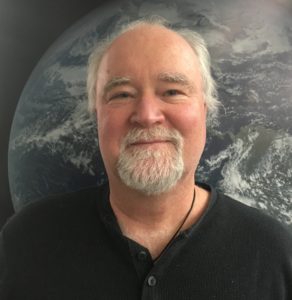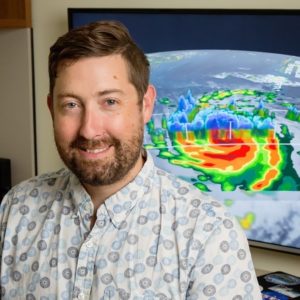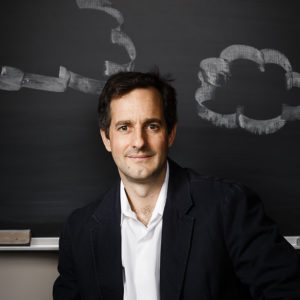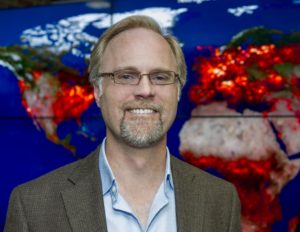Search narrows for Space Science and Engineering Center director
Public presentations have been scheduled for the four finalists for the Space Science and Engineering Center (SSEC) director position.
SSEC is a dynamic, multidisciplinary research and development center in the University of Wisconsin-Madison’s Office of the Vice Chancellor for Research and Graduate Education. Its mission is to conduct atmospheric, oceanic, environmental and astronomical research using model simulations and remote sensing from space borne, airborne, and surface-based platforms to discover and apply physical properties of the universe for the benefit of humanity.
The finalists are:

Brad Pierce
Brad Pierce, a physical scientist at the National Oceanic and Atmospheric Administration within the Advanced Satellite Products Branch on the UW-Madison campus co-located with the Cooperative Institute for Meteorological Satellite Studies within SSEC. He also is an adjunct faculty member within the Department of Atmospheric and Oceanic Sciences. Pierce received his Ph.D. in meteorology from UW-Madison.
The title of his presentation is “A Cross Disciplinary, Multi-Tool Approach to Support Regional and Global Air Quality Assessment and Forecasting.”
9 to 10:30 a.m., April 23 at Weeks Hall (AB20). See the recorded presentation here: https://research.wisc.edu/uncategorized/2018/04/13/brad-pierce/

Stephen (Steve) Nesbitt
Stephen Nesbitt, an associate professor in the Department of Atmospheric Sciences at the University of Illinois at Urbana-Champaign. His research interests include studying clouds and precipitation systems, and the many physical processes within them, across the globe. He is an affiliate with Computational Science and Engineering and the Center for Latin American and Caribbean Studies. Nesbitt received his Ph.D. in meteorology from the University of Utah.
The title of his presentation is “Earth observations to address global societal challenges.”
9:30-11 a.m., May 10 at the Union South Marquee Theatre. See the recorded presentation here: https://www.youtube.com/watch?v=3wlEOE7qtOM&feature=youtu.be

Daniel Cziczo
Daniel Cziczo, an associate professor of atmospheric chemistry with a secondary appointment in civil and environmental engineering at the Massachusetts Institute of Technology’s Department of Earth, Atmospheric and Planetary Sciences. His research interests are in the interrelationship of particulate matter and cloud formation. Cziczo received his Ph.D. in geophysical sciences from The University of Chicago.
The title of his presentation is, “Characterizing the Particles that Make Clouds: Findings, Uncertainties and Next Steps.” 9:30 to 11 a.m., May 14 at the Union South Marquee Theatre. See the presentation slides here: https://research.wisc.edu/uncategorized/2018/04/13/daniel-cziczo/

Bryan Duncan
Bryan Duncan, a research physical scientist at NASA’s Goddard Space Flight Center and a project scientist for NASA’s Aura satellite mission. His research focuses on satellite data analysis with goals to develop novel applications of the data and to inform satellite mission development, climate science and global change, the impact of air pollution on human health and agriculture, and the complex interactions between the cryosphere, biosphere, hydrosphere and atmosphere. Duncan received his Ph.D. in Earth and atmospheric sciences from the Georgia Institute of Technology.
The title of his presentation is, “Always Searching for New and Novel Applications of Satellite Data.”
9:30 to 11 a.m., May 23 at the Union South Marquee Theatre. See the presentation video here: https://research.wisc.edu/uncategorized/2018/04/16/bryan-duncan/
Visit research.wisc.edu to learn more about each of the candidates and view their presentations following their talks.
“The SSEC plays an integral role on the UW-Madison campus in leading large-scale research programs involving instrument development, data analysis technique development, participation in field campaigns, and new technology definition and implementation,” says Norman Drinkwater, interim vice chancellor for research and graduate education. “I’m thankful to Michael Morgan, professor in the Department of Atmospheric and Oceanic Sciences, for leading the search team for the next director of this important leadership position on campus.”
by Natasha Kassulke, natasha.kassulke@wisc.edu
